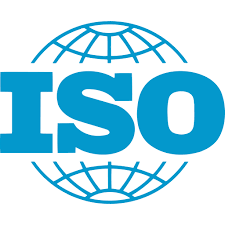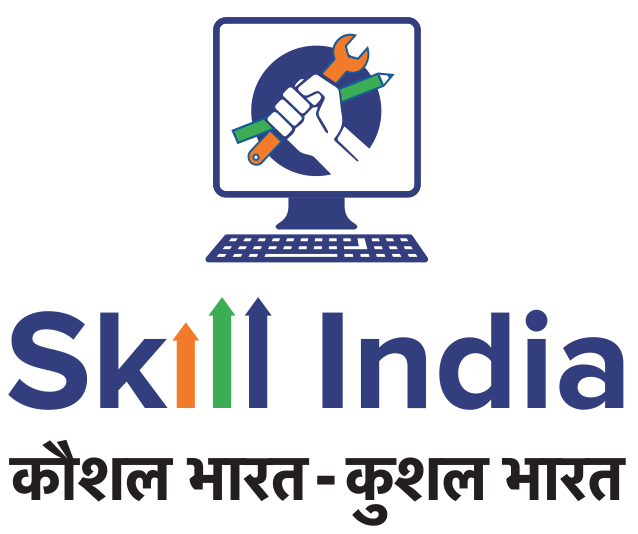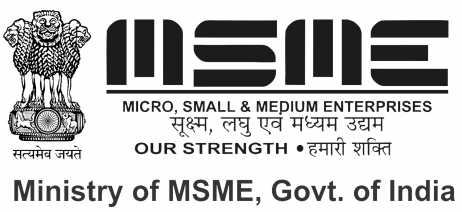AI + Gen AI for MBBS/MEDICAL Students

Certificate Program in ARTIFICIAL INTELLIGENCE IN HEALTHCARE
Duration: 6 Months| Eligibility: PUC/10+2/UG/PG

AI in Medical Science refers to the use of information and communications technologies in medicine and other health professions to manage illnesses and health risks and to promote wellness. The broad scope of digital health includes categories such as mobile health (mHealth), health information technology (IT), wearable devices, telehealth, electronic health (eHealth) telemedicine, and personalized or precession medicine.
From mobile medical apps and software that support the clinical decisions, doctors make use of artificial intelligence and machine learning every day, digital technology has been driving a revolution in health care. ARTIFICIAL INTELLIGENCE IN HEALTHCARE tools have the vast potential to improve our ability to accurately diagnose and treat disease and to enhance the delivery of health care for the individual.
ARTIFICIAL INTELLIGENCE IN HEALTHCARE technologies use computing platforms, connectivity, software, and sensors for health care and related uses. These technologies span a wide range of uses, from applications in general wellness to applications as a medical device. They include technologies intended for use as a medical product, in a medical product, as companion diagnostics, or as an adjunct to other medical products (devices, drugs, and biologics). They may also be used to develop or study medical products.
Job Opportunities in AI in Medical
AI Healthcare Developer/Engineer:
Leverage your programming skills to design, develop, and implement AI algorithms and solutions that enhance diagnostic accuracy, streamline workflows, and improve patient outcomes.
Clinical Data Scientist:
Combine your expertise in data analysis and healthcare to extract meaningful insights from vast datasets. Clinical data scientists play a crucial role in deriving actionable information to support clinical decision-making.
Healthcare AI Researcher:
Contribute to the advancement of AI in healthcare by engaging in cutting-edge research. Explore new algorithms, models, and technologies that can address challenges and drive innovation in the field.
AI Ethicist in Healthcare:
With the increasing integration of AI, professionals are needed to ensure ethical considerations are embedded in healthcare AI applications. This role involves addressing issues related to bias, privacy, and fairness in AI algorithms.
Healthcare AI Implementation Specialist:
Bridge the gap between technology and healthcare by facilitating the seamless integration of AI solutions into existing healthcare systems. This role requires a deep understanding of both technological and healthcare processes.
Telehealth AI Specialist:
As telehealth becomes more prevalent, professionals are needed to integrate AI technologies into virtual healthcare delivery. This role focuses on optimizing patient interactions and providing personalized virtual care.
AI Health Informatics Manager:
Manage and analyze health data systems, ensuring the effective utilization of AI technologies. This role involves overseeing the implementation of AI solutions to improve health informatics and overall healthcare delivery.
AI Healthcare Consultant:
Provide strategic guidance to healthcare organizations on implementing AI solutions. This role requires a blend of technical knowledge and the ability to understand the unique challenges and goals of healthcare institutions.
Medical Imaging AI Specialist:
Work at the intersection of AI and medical imaging to develop algorithms that enhance the accuracy and efficiency of image interpretation, aiding in early disease detection and diagnosis.
AI Product Manager in Healthcare:
Combine your business acumen with technical understanding to drive the development and launch of AI-powered healthcare products. This role involves overseeing the entire product lifecycle.
AI algorithms can assist para-medical students in interpreting medical images, such as X-rays, MRIs, and CT scans. This can enhance diagnostic accuracy and help students develop better clinical skills.
AI-powered educational platforms can provide personalized learning experiences, catering to the individual needs and learning styles of para-medical students. This ensures that each student receives targeted training in areas where they may need improvement.
AI can be utilized to create realistic virtual patient simulations, allowing para-medical students to practice clinical procedures and decision-making in a risk-free environment. This enhances their practical skills and prepares them for real-world scenarios.
AI can be utilized to create realistic virtual patient simulations, allowing para-medical students to practice clinical procedures and decision-making in a risk-free environment. This enhances their practical skills and prepares them for real-world scenarios.
AI can analyze vast amounts of medical data quickly and efficiently. Para-medical students can benefit from AI-generated insights, aiding in their research projects and helping them stay updated on the latest advancements in their field.
AI can predict disease patterns and outbreaks, allowing para-medical students to understand the importance of early intervention and preventive measures. This knowledge is crucial in public health planning and management.
AI-driven NLP applications can assist para-medical students in understanding and extracting relevant information from medical literature, research papers, and patient records. This promotes effective communication and documentation.
AI can facilitate remote patient monitoring and telemedicine, providing para-medical students with exposure to cutting-edge technologies. This prepares them for evolving healthcare practices, including virtual consultations and remote healthcare delivery.
AI can streamline administrative tasks, allowing para-medical professionals to focus more on patient care. This efficiency improvement creates a conducive learning environment and helps students understand the importance of time management in healthcare settings
AI in Medical Field :AI applications can be used to simulate ethical and legal dilemmas that para-medical students may encounter in their practice. This helps in developing critical thinking skills and ensuring that students are well-prepared for the complexities of healthcare ethics.
AI can deliver real-time updates on medical breakthroughs, new treatment options, and changes in healthcare protocols. This ensures that para-medical students stay current with the latest advancements in their field.
Incorporating AI into para-medical education not only enhances the learning experience but also prepares students for a future where technology plays a significant role in healthcare delivery. It’s essential for educational institutions to integrate AI responsibly and ensure that students develop a strong foundation in both traditional and cutting-edge healthcare practices.
Integrating AI, machine learning (ML), and generative AI into medical education offers transformative opportunities for MBBS students. Here are some key areas and applications:
- Personalized Learning
- Adaptive Learning Systems: AI can analyze students’ learning patterns and performance to tailor study materials and pathways, ensuring a customized educational experience.
- Intelligent Tutoring Systems: These systems can provide real-time feedback and support, adapting questions and explanations based on student responses.
- Clinical Skills Training
- Medical Image Segmentation: Using the powerful techniques, area of interest can be marked or extracted, which acts like boundaries. Segmentation can also be applied on datasets to create labels.
- Detection or Recognition of Disease: Algorithms can be applied to recognize patterns or identify the problem from provided data.
- Data Analysis and Research
- Predictive Analytics: ML algorithms can analyze vast datasets to identify trends in patient outcomes, helping students learn how to apply data-driven decision-making in clinical settings.
- Natural Language Processing (NLP): AI can assist in extracting relevant information from medical literature and clinical notes, streamlining the research process for students.
- Generative AI in Content Creation
- Resource Generation: Generative AI can be used to understand, summarize and comprehend medical terminologies, helping students review complex topics.
- Scenario Development: Students can use generative AI to develop clinical scenarios for role-playing exercises, enhancing their understanding of differential diagnoses and treatment planning.
- Assessment and Feedback
- Automated Assessments: AI can help in creating dynamic assessments that adapt to the student’s knowledge level, providing a more accurate measure of understanding.
- Feedback Mechanisms: AI tools can analyze student performance over time, offering insights and recommendations for improvement.
- Communication Skills Enhancement
- Patient Interaction Simulations: Generative AI can simulate patient interactions, allowing students to practice their communication and bedside manner in a safe environment.
- Writing Assistants: AI tools can help students improve their clinical documentation and professional communication by providing suggestions and feedback.
- Ethics and Decision-Making Training
- Case-Based Learning: Generative AI can create complex ethical dilemmas and case studies for discussion, preparing students for real-world challenges in healthcare.
- Bias Detection: AI tools can help students recognize and address biases in clinical decision-making and research.
Collaboration and Networking
- Study Groups and Forums: iPEC can facilitate connections among students with similar interests or needs, fostering collaborative learning environments.
- Mentorship Matching: iPEC can assist in pairing students with mentors based on their interests, goals, and expertise.
Continuous Education and Lifelong Learning
- Curriculum Updates: iPEC can monitor the latest research and guidelines, helping students stay informed about current best practices in medicine.
- Personalized Continuing Education: After graduation, iPEC can recommend courses and resources based on individual career paths and interests.
Implementation Strategies
- Training and Support: Educators and students should receive training on the effective use of AI and generative AI tools.
- Ethical Considerations: Address ethical implications and ensure responsible use of AI in medical education.
By leveraging AI, ML, and generative AI, medical education can become more interactive, personalized, and aligned with the evolving landscape of healthcare. This approach prepares students not only to excel in their studies but also to thrive in their future medical careers.
- Growth of evolution of ARTIFICIAL INTELLIGENCE IN HEALTHCARE
- Growth of evolution of ARTIFICIAL INTELLIGENCE IN HEALTHCARE
- Teleconsultation
- Capturing of health data and features of health information system
- Application of AI in health care
- Health Care Data Analytics
- Global ARTIFICIAL INTELLIGENCE IN HEALTHCARE market
- Patients and consumers can use ARTIFICIAL INTELLIGENCE IN HEALTHCARE technologies to better manage and track their health and wellness-related
- Opportunities to the Indian youth in healthcare to skill up themselves
- Minimum qualification PUC pass
- Working Professional in Healthcare
- Students from Healthcare
- Paramedical
- Pharmacy
- General Medicine
- Unani
- Ayurveda
- Nursing
- Freshers who are aspire to work in Healthcare
- For Future Doctors
ARTIFICIAL INTELLIGENCE IN HEALTHCARE - SYLLABUS
- AI in Medical Science: INTRODUCTION
- Medical Data and Its Importance
- Wearable Sensors For Health Monitoring
- Medical Data Analysis Using Excel
- Mathematics
- Data Analysis Using Statistical Methods
- Natural Language Processing
- Digital Signal Processing For Medical Professionals
- Machine Learning Basics For Healthcare
- Deep Learning In Imaging/Vision/Text




Certificates
Earn industry-recognized certificates to enhance your skills and career opportunities.
Become an expert in your field with our Offline/ online courses.
Unlock your full potential with our expert-led Offline / online courses. Gain practical knowledge and advance your career in your chosen field.
What Our Students Say
Student Experiences: In Their Own Words
Hear from our successful students who have transformed their careers with iPEC’s hands-on training. From mastering AI and automation to securing top industry roles, our graduates share how iPEC’s expert mentorship, real-world projects, and career-focused learning helped them achieve their dreams.


